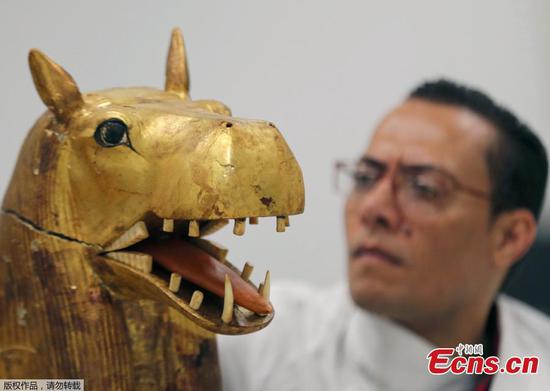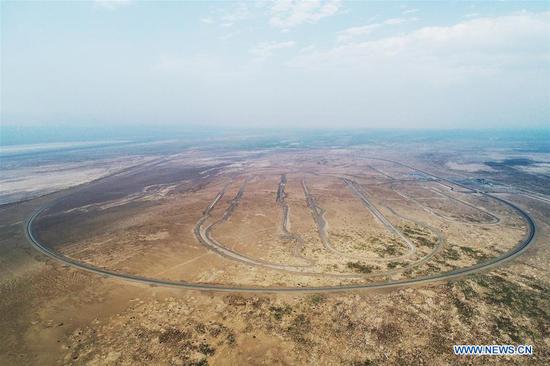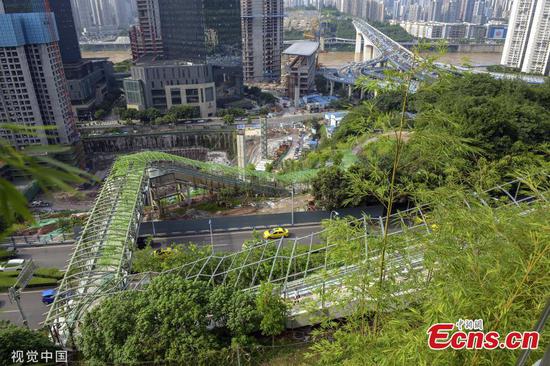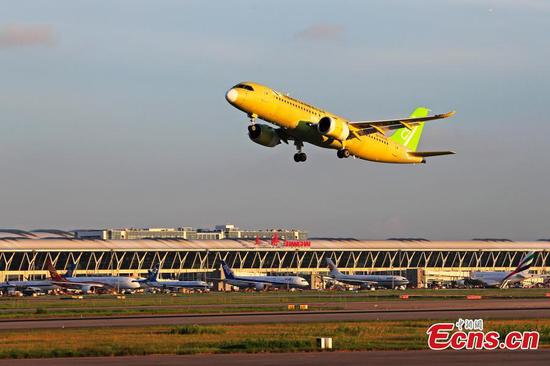Policy support key
Such high expectations for the GBA are well justified. Collectively, the GBA had a GDP of $1.64 trillion in 2018, putting it ahead of South Korea ($1.62 trillion) which ranked 12th in the world.
Even assuming a conservative average nominal annual growth rate of 7 percent, the GBA's GDP could surpass that of the UK and France by around 2035, making it the sixth largest after Germany.
In reality, however, the GBA needs a comprehensive plan and strong policy backing to achieve its full potential, for which it would require freer flow of capital, goods, people and information, better integration of different legal systems, and functional specialization via well-defined roles and priorities, among many other things.
The promotion of innovation, collaboration and the acceleration of infrastructural connectivity are seen as key means to achieving such goals.
Infrastructural connectivity is the key to preventing a mega city cluster from collapsing under its own weight, and takes a long time to build. Such essential infrastructure projects are well underway in the GBA.
Financial services could be among the earlier movers, benefiting from the collective experience of the authorities and industry players in driving renminbi internationalization for the past decade.
In comparison, other aspirations such as modernizing manufacturing, building a shared big data center, establishing education and talent hubs, and developing a cultured metropolitan economy are likely to progress more gradually, but should interest corporates and inventors for years to come. This especially includes policies that favor specific industries, promote cross-border mobility or widen mutual market access.
Superb principle
Unlike other existing bay areas or metropolitan cities, the GBA needs to integrate multiple legal and social systems to become a true city cluster. It is therefore critical that the plan places considerable focus on overcoming physical, social and regulatory boundaries to promote freer cross-border flows of people, goods, services, capital and information, while preserving the "one country, two systems" principle.
Much of the GBA's synergies stem from Hong Kong and Macao's continued ability to be economically open and market-oriented, and the strength of their institutions and rule of law.
We note the following challenges for the GBA to improve connectivity and boost cross-boundary mobility: simplifying immigration and customs clearance, relaxing capital account controls, aligning financial regulations, improving data access and sharing, aligning policies on IP protection and data privacy, mutual recognition of professional qualifications, setting environmental and food safety standards, and the cross-border dovetailing of social-security and public services.
Much progress has been made on regional integration in the past 10-15 years through the Pearl River Delta's development, on the back of China's conscious policy push, which was mainly to facilitate the opening of the mainland's economy and financial markets.
However, much more remains to be done in developing cross-border connectivity across all forms of factors of production, implying that policy coordination and implementation are likely to become more difficult, going forward. As such, the Outline Development Plan of the GBA takes a more long-term rather than short-term view.|


















































